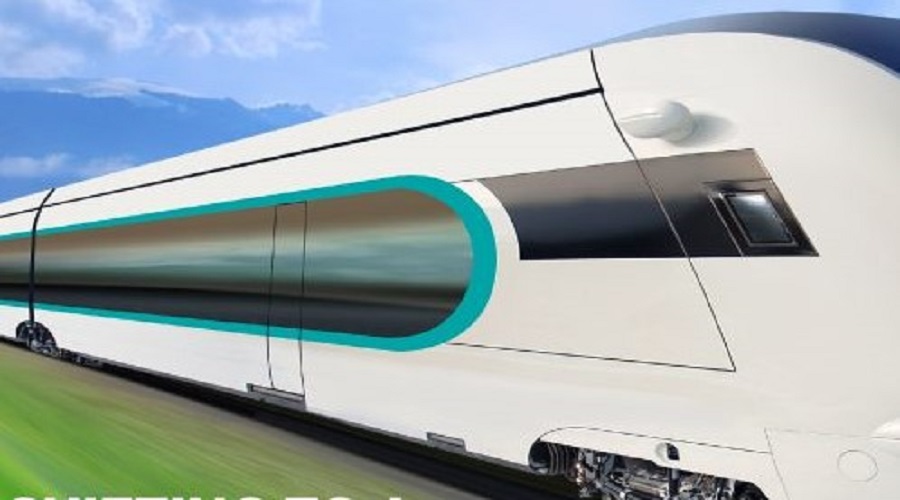A. Harikumar
The trains of Indian Railways that trundle across Kerala at an average speed of 45 kms per hour are among the slowest in India, and the passenger woes are often doubled down by inordinate delays. Everyone wants more services, doubling of existing tracks and speedier trains.
However, when the Kerala government recently announced a plan to build a semi high speed rail corridor named SilverLine, extending from the northernmost district of Kasaragod to Thiruvananthapuram at the southern end, it was met with a storm of protest. Experts ranging from Alok Verma who was one of the members of the team that prepared the detailed project report (DPR) to metroman E Sreedharan have opposed it. Politicians including former chief minister Oommen Chandy, opposition leader V. D Satheesan, and BJP state president K Surendran have united to oppose SilverLine project. Industry bodies like the Kerala Government Contractors’ Association (KGCA) are also against implementing the project in the present form.
Even the LDF coalition partner CPI is guarded in their support to SilverLine. The survey to demarcate the land to be acquired for the project has met with violent protest from the public, almost everywhere. People are apprehensive that the government will take away their little bit of land without proper compensation, and they will have run from pillar to the post to get even the approved payment.
It seems like a paradox; everyone wants speedier trains, but when the Government readies to implement a semi-high speed train project, people develop cold feet. It it just the fear of losing their land that incites fear among the public? Definitely not; the government’s poor track record in infrastructure development and apprehensions about an impending financial crisis in Kerala are stoking the fears. There are doubts about, the viability of the project, capability of Kerala government to source funds, the technology to be used for the project and its environmental impact. The fears are based on the history of infrastructure projects implemented in the state, where even road projects are marked by huge delay and cost escalation.
Government’s claims
The government says the SilverLine project which would cost Rs 66,079 crore will reduce the travel time between the two ends of Kerala from the current 12 hours to around 4 hours, and will benefit the development of the state. It envisions laying down new tracks parallel to the existing railway track. The SilveLine Corridor will be integrated to Thiruvananthapuram and Kochi airports and Technopark and Infopark, the biggest IT hubs in Kerala.
The Kerala government says the project will give a fillip to the overall development of the state, reduce road traffic and accidents and save precious time of passengers. Further, the environmental damage caused by the project will be least, as SilverLine uses renewable energy sources, and will lead to reduction in emission of green house gases. Further, the acquisition of land will be minimal compared to the alternatives to SilverLine. But not everyone is ready to buy the arguments of the Govenment.
Opposition’s Arguments
Former chief minister Oommen Chandy says the Rapid Rail Transit System envisaged when he was the chief minister cost only Rs 8000 crore and would not have created financial liability to Kerala which is reeling under debt. It would have speeded up trains and solved the problem of delays. The present project is being finalised without considering the previous project, he noted. The government should think if it is right to evict thousands of people without having a sound programme of rehabilitation. The government should roll back its decision to build Silver Line Corridor, he said.
The Opposition points out that the projected estimate of around Rs 66,000 is a ruse. The actual cost would run into over Rs.1.5 lakh crore. At present Kerala is having a huge debt burden and the present debt burden would balloon to over Rs 5 lakh crore,, including interest by 2030. Kerala’s tax collection is very poor and revenue expenditure is very high. It is unlikely that the SilverLine project would generate a huge income to ensure repayment. Critics point out that a relatively small project like Kochi Metro is currently running losses.
Former PWD minister M K Muneer notes that at present what Kerala needs is road development and nothing else can replace it. Twenty years ago the then state government led by the UDF prepared a plan to construct an expressway at a cost of Rs 6400 crores. Returns on the capital spent would have come from toll collection.Then, the left opposed it lock stock and barrel, said Mr Muneer.
KGCA state president Varghese Kannampally opines that SilverLine shouldn’t be the priority. What Kerala urgently needs is the development of roads including national highways, and measures for flood control He notes that the technology for the proposed SilverLine is not state-of-the-art.
Despite opposition to the project, there are people who believe that SilverLine project should be considered after removing the apprehensions of the critics. Instead of strong arm tactics, the government needs to initiate discussions with those who differ, and consider their views also to reach a consensus.

